20 Years After the Iraq War
The Iraq War is now 20 years old since its inception. The emotion, fervor, and controversies surrounding the war akin to the Vietnam War. Numerous human beings exploited 9/11 to advance the conflict. I remember when it started just like yesterday. I was almost 20 years old back then and was taking classes in college. America was dominated by a mostly Republican House and Senate with the Republican President George W. Bush. The United States of America was much more conservative back in 2003 than today in 2023. The Iraq War was based on a lie that Saddam Hussein had massive quantities of weapons of mass destruction that could be used all over the Middle East. The Bush administration promoted this lie in 2002 and in 2003 plus beyond. The coalition of America and its allies against Iraq was extensive. The war ended the Iraqi government of Saddam Hussein. The war was quickly an American victory in the beginning, and then the Iraqi resistance came about to make it a very long, bloody conflict. Scandals like Abu Ghraib (where Iraqi prisoners in 2004 were tortured and abused in a very perverted, graphic fashion. That even exposed the evil of torture for the world to witness) and what took place in Fallujah took place. American troops were officially withdrawn in 2011. Yet, American troops came back in 2014 after being head of a new coalition to stop the insurgency of the reactionary ISIS group. Iraq faces conflicts to this very day. George W. Bush administration's war on terror, after the attacks on September 11th, 2001, still has consequences today as we approach the quarter-century mark of the 20th century. From shock and awe to modern Iraqi society, the Iraq War caused the whole world to change.
Iraq's History
The history of Iraq goes back a long way. Between 65,000 B.C. and 35,000 B.C., northern Iraq was home to a Neanderthal culture, archaeological remains of which have been found at Shanidar Cave. The same region is also the location of a number of pre-Neolithic cemeteries, dating from approximately 11,000 B.C. From ca. 10,000 B.C., Iraq was part of the large Fertile Crescent region. This region stretched from Asia Minor to the Levant. The Fertile Crescent has the Neolithic culture known as Pre-Pottery Neolithic A (PPNA), where agriculture and cattle breeding appeared for the first time in the world. In Iraq, this period has been excavated at sites like M'lefaat and Nemrik 9. The following Neolithic period, PPNB, is represented by rectangular houses. At the time of the pre-pottery Neolithic, people used vessels made of stone, gypsum and burnt lime (Vaisselle blanche). Finds of obsidian tools from Anatolia are evidence of early trade relations. There was more human advancement found in Jarmo (in ca. 7100 B.C.). There were cities belong to the Halaf culture and Tell al-Ubaid culture. Research called the era of the "Cradle of Civilization" of modern Iraq's early known civilization after the Old Stone Age being the Sumerian civilization. It arose in the fertile Tigris-Euphrates river valley of southern Iraq in the Chalcolithic (Ubaid period). By the late 4th millennium B.C., there was the world's first writing modern system. Recorded history was born. The Sumerians were also the first to harness the wheel and create city states, and whose writings record the first evidence of mathematics, astronomy, astrology, written law, medicine, and organized religion. The language of the Sumerians is a language isolate. The major city states of the early Sumerian period were; Eridu, Bad-tibira, Larsa, Sippar, Shuruppak, Uruk, Kish, Ur, Nippur, Lagash, Girsu, Umma, Hamazi, Adab, Mari, Isin, Kutha, Der and Akshak.
The cities to the north like Ashur, Arbela (modern Erbil) and Arrapha (modern Kirkuk) were also extant in what was to be called Assyria from the 25th century BC; however, at this early stage, they were Sumerian ruled administrative centers. The Bronze Age empires grew in ancient Iraq too. In the 26th century BC, Eannatum of Lagash created what was perhaps the first empire in history, though this was short-lived. Later, Lugal-Zage-Si, the priest-king of Umma, overthrew the primacy of the Lagash dynasty in the area, then conquered Uruk, making it his capital, and claimed an empire extending from the Persian Gulf to the Mediterranean. It was during this period that the Epic of Gilgamesh originates, which includes the tale of The Great Flood. From the 29th century BC, Akkadian Semitic names began to appear on king lists and administrative documents of various city-states. It remains unknown as to the origin of Akkad, where it was precisely situated and how it rose to prominence. Its people spoke Akkadian, an East Semitic language. Between the 29th and 24th centuries BC, a number of kingdoms and city states within Iraq began to have Akkadian speaking dynasties; including Assyria, Ekallatum, Isin and Larsa.
However, the Sumerians remained generally dominant until the rise of the Akkadian Empire (2335–2124 BC), based in the city of Akkad in central Iraq. Sargon of Akkad, originally a Rabshakeh to a Sumerian king, founded the empire, he conquered all of the city states of southern and central Iraq, and subjugated the kings of Assyria, thus uniting the Sumerians and Akkadians in one state. Sargon expanded his empire to rule over Gutium, Elam in modern day Iran, and other places. He conquered the Amorites and Eblaites of the Levant. The empire of Akkad ended by the 22nd century B.C. likely. There were no kingdoms until the Third Dynasty of Ur. After the collapse of the Akkadian Empire in the late 22nd century BC, the Gutians occupied the south for a few decades, while Assyria reasserted its independence in the north. Most of southern Mesopotamia was again united under one ruler during the Ur III period, most notably during the rule of the prolific king Shulgi. His accomplishments include the completion of construction of the Great Ziggurat of Ur, begun by his father Ur-Nammu.
In 1792 BC, an Amorite ruler named Hammurabi came to power in this state, and immediately set about building Babylon from a minor town into a major city, declaring himself its king. Hammurabi (who was a Semitic person) conquered the whole of southern and central Iraq, as well as Elam to the east and Mari to the west, then engaged in a protracted war with the Assyrian king Ishme-Dagan for domination of the region, creating the short-lived Babylonian Empire. He eventually prevailed over the successor of Ishme-Dagan and subjected Assyria and its Anatolian colonies. By the middle of the eighteenth century BC, the Sumerians had lost their cultural identity and ceased to exist as a distinct people. Genetic and cultural analysis indicates that the Marsh people of southern Iraq are probably their most direct modern descendants. Southern Iraq became Babylonia. The northern part of Iraq became Assyria. Many people ruled Iraq like the Akkadians and the Kassites. The Middle Asyrian Empire ruled from 1365 B.C. to 1020 B.C. Beginning with the campaigns of Ashur-uballit I, Assyria destroyed the rival Hurrian-Mitanni Empire, annexed huge swathes of the Hittite Empire for itself, annexed northern Babylonia from the Kassites, forced the Egyptian Empire from the region, and defeated the Elamites, Phrygians, Canaanites, Phoenicians, Cilicians, Gutians, Dilmunites and Arameans. At its height, the Middle Assyrian Empire stretched from The Caucasus to Dilmun (modern Bahrain), and from the Mediterranean coasts of Phoenicia to the Zagros Mountains of Iran. In 1235 BC, Tukulti-Ninurta I of Assyria took the throne of Babylon. By the end of the Bronze Age, Babylonia was ruled by Assyria and Elam in choas. The Chaldeans moved into Babylonian too. The Chaldeans were West Semitic migrants from the southeastern corner of the region.
The Neo Assyrian Empire rules Iraq from 935 to 605 B.C. The Neo-Assyrian Empire is considered by researchers to be the first world empire in history. It had the strongest military in the world during its peak. It ruled all of Mesopotamia, Levant, Egypt, parts of Anatolia, parts of Arabia, parts of Iran, and Armenia. Its rulers were Adad-Nirari II, Ashurnasirpal, Shalmaneser III, Semiramis, Tiglath-pileser III, Sargon II, Sennacherib, Esarhaddon and Ashurbanipal. It spread as far as parts of Nubia too. The Arabic people and the Chaldeans are first mentioned in written history (circa 850 BC) in the annals of Shalmaneser III. They ruled Israel for a time too. Judaism grew during this period. Civil wars and other issues ended the Assyrian Empire. The Babylonians, Chaldeans, Medes, Persians, Parthians, Scythians, and Cimmerians, were able to attack Assyria, finally bringing its empire down by 605 BC. The Neo-Babylonian Empire ruled Iraq. Nebuchadnezzar II was its greatest king. The Hanging Gardens of Babylon existed as one of the Seven Wonders of the Ancient World. Cyrus the Great of Persia defeated the Neo-Babylonian Empire at the Battle of Opis and Mesopotamia. The Achaemenid Empire ruled for a time until Alexander the Great ruled the region in the Hellenistic Empire. The Parthians and the Romans conquered Iraq too. Christianity spread in Iraq early on, especially the Church of the East with Syriac literature. By 224, the Sassanids of Persia under Ardashir I destroyed the Parthian Empire and conquered the region in 224 AD. During the 240s and 250's AD, the Sassanids gradually conquered the independent states, culminating with Assur in 256 AD. The region was thus a province of the Sassanid Empire for over four centuries and became the frontier and battleground between the Sassanid Empire and Byzantine Empire, with both empires weakening each other, paving the way for the Arabic-Muslim conquest of Mesopotamia in the mid-7th century.
Muslim people of Arabic descent defeated Persian forces in Iraq by 634 A.D. There was a force of some 5,000 Muslims under Abū `Ubayd ath-Thaqafī, which was routed by the Persians. This was followed by Khalid ibn al-Walid's successful campaign which saw all of Iraq come under Arabic rule within a year, with the exception of the Persian Empire's capital, Ctesiphon. Around 636, a larger Arab Muslim force under Sa`d ibn Abī Waqqās defeated the main Persian army at the Battle of al-Qādisiyyah and moved on to capture the Persian capital of Ctesiphon. By the end of 638, the Muslims had conquered all of the Western Sassanid provinces (including modern Iraq), and the last Sassanid Emperor, Yazdegerd III, had fled to central and then northern Persia, where he was killed in 651. Muslim dynasties ruled Iraq. In 1257, Hulagu Khan amassed an unusually large army, a significant portion of the Mongol Empire's forces, for the purpose of conquering Baghdad. When they arrived at the Islamic capital, Hulagu Khan demanded its surrender, but the last Abbasid Caliph Al-Musta'sim refused. This angered Hulagu, and, consistent with Mongol strategy of discouraging resistance, he besieged Baghdad, sacked the city and massacred many of the inhabitants. Estimates of the number of dead range from 200,000 to a million. The Mongols destroyed the Abbasid Caliphate and Baghdad's House of Wisdom, which contained countless precious and historical documents. The city has never regained its previous pre-eminence as a major center of culture and influence. Some historians believe that the Mongol invasion destroyed much of the irrigation infrastructure that had sustained Mesopotamia for millennia. Other historians point to soil salination as the culprit in the decline in agriculture. The Black Death disease killed many in Iraq. The Ottoman Empire ruled Iraq after Tamerlane (a person of Mongol descent) conquered Baghdad. They ruled for centuries until WWI.
During World War I, the Ottomans sided with Germany and the Central Powers. In the Mesopotamian campaign against the Central Powers, British forces invaded the country and initially suffered a major defeat at the hands of the Turkish army during the Siege of Kut (1915–1916). However, subsequent to this the British began to gain the upper hand and were further aided by the support of local Arabic people and Assyrians. In 1916, the British and French made a plan for the post-war division of Western Asia under the Sykes-Picot Agreement. British forces regrouped and captured Baghdad in 1917 and defeated the Ottomans. An armistice was signed in 1918. The British lost 92,000 soldiers in the Mesopotamian campaign. Ottoman losses are unknown, but the British captured a total of 45,000 prisoners of war. By the end of 1918, the British had deployed 410,000 men in the area, of which 112,000 were combat troops.
During the Ottoman Empire until the partition of the Ottoman Empire in the 20th century, Iraq was made up of three provinces, called vilayets in the Ottoman language: Mosul Vilayet, Baghdad Vilayet, and Basra Vilayet. These three provinces were joined into one Kingdom by the British after the region became a League of Nations mandate, administered under British control, with the name "State of Iraq." A fourth province (Zor Sanjak), which Iraqi nationalists considered part of Upper Mesopotamia was ultimately added to Syria. In line with their "Sharifian Solution" policy, the British established the Hashemite king on 23 August 1921, Faisal I of Iraq, who had been forced out of Syria by the French, as their client ruler. The official English name of the country simultaneously changed from Mesopotamia to the endonymic Iraq. Likewise, British authorities selected Sunni Arabic elites from the region for appointments to government and ministry offices. Faced with spiraling costs and influenced by the public protestations of the war hero T. E. Lawrence in The Times, Britain replaced Arnold Wilson in October 1920 with a new Civil Commissioner, Sir Percy Cox. Cox managed to quell a rebellion, yet was also responsible for implementing the fateful policy of close co-operation with Iraq's Sunni minority. The institution of slavery was abolished in the 1920s. Britain allowed the Kingdom of Iraq to have independence in 1932. King Faisal allowed British forces to have its military bases in Iraq. Many rulers existed in Iraq. By April 1, 1941, Rashid Ali al-Gaylani and members of the Golden Square staged a coup d'état and overthrew the government of 'Abd al-Ilah. During the subsequent Anglo-Iraqi War, the United Kingdom (which still maintained air bases in Iraq) invaded Iraq for fear that the Rashid Ali government might cut oil supplies to Western nations because of his links to the Axis powers. The war started on 2 May, and the British, together with loyal Assyrian Levies, defeated the forces of Al-Gaylani, forcing an armistice on May 31. Qasim led a coup against Iraq by 1958. He wanted anti-imperial and anti-monarchical policies to exist. Numerous people were killed in the coup, including King Faysal II, Prince Abd al-Ilah, and Nuri al-Sa'id. Qasim ruled Iraq until the February 1963 coup. The Ba'ath Party view Ahmed Hassan Al-Bakr ruled Iraq.
The movement gradually came under the control of Saddam Hussein, who acceded to the presidency and control of the Revolutionary Command Council (RCC), then Iraq's supreme executive body, in July 1979. In 1979, the Iranian Revolution took place. Following months of cross-border raids between the two countries, Saddam declared war on Iran in September 1980, initiating the Iran–Iraq War (or First Persian Gulf War). Taking advantage of the post-revolution chaos in Iran, Iraq captured some territories in southwest of Iran, but Iran recaptured all of the lost territories within two years, and for the next six years Iran was on the offensive. The war, which ended in stalemate in 1988, had cost the lives of between half a million and 1.5 million people.
In 1981, Israeli aircraft bombed an Iraqi nuclear materials testing reactor at Osirak and was widely criticized at the United Nations. During the eight-year war with Iran, Saddam Hussein extensively used chemical weapons against Iranians. In the final stages of the Iran–Iraq War, the Ba'athist Iraqi regime led the Al-Anfal Campaign, a genocidal campaign that targeted Iraqi Kurds, and led to the killing of 50,000–100,000 civilians.
The Persian Gulf War
The Persian Gulf War of the 1990's had a long history. It occurred when I was in elementary school. Iraq didn't have the ability to pay Kuwait more than 14 billion dollars (in U.S. dollars) that it had borrowed to finance the Iran-Iraq War. Kuwait had a surge in petroleum production levels which kept revenues down. Iraq interpreted Kuwait's refusal to decrease its oil production as an act of aggression. Throughout much of the 1980's, Kuwait's oil production was above its mandatory OPEC quota, which kept the oil prices down. Therefore, in August 1990, Iraq invaded and annexed Kuwait. This led to a military intervention by the United S forces in the First Gulf War. President George H. W. Bush felt that Iraq could possibly invade Saudi Arabia after Kuwait destabilized markets worldwide. The coalition forces proceeded with a bombing campaign targeting military targets. Then, the coalition Western forces launched a 100-hour-long ground assault against Iraqi forces in Southern Iraq and those occupying Kuwait. Iraq's armed forces were devastated during the war. Shortly after it ended in 1991, Kurdish Iraqis led several uprisings against Saddam Hussein's regime, but these were successfully repressed using Iraqi security forces and chemical weapons. It is estimated that as many as 100,000 people, including many civilians, were killed. During the uprisings, the US, UK, France, and Turkey, claiming authority under UNSCR 688, established the Iraqi no-fly zones to protect Kurdish population from attacks by the Saddam regime's fixed-wing aircraft (but not helicopters).
Iraq was ordered to destroy its chemical and biological weapons and the UN attempted to compel Saddam's government to disarm and agree to a ceasefire by imposing additional sanctions on the country in addition to the initial sanctions imposed following Iraq's invasion of Kuwait. The Iraqi Government's failure to disarm and agree to a ceasefire resulted in sanctions which remained in place until 2003. President Bill Clinton did airstrikes in Iraq in 1998 via Operation Desert Fox in opposing Saddam's weapons program. The effects of the sanctions on the civilian population of Iraq have been disputed. Whereas it was widely believed that the sanctions caused a major rise in child mortality, recent research has shown that commonly cited data were fabricated by the Iraqi government and that "there was no major rise in child mortality in Iraq after 1990 and during the period of the sanctions." An oil-for-food program was established in 1996 to ease the effects of sanctions. For the record, the Iraqi sanctions did harm civilian lives, and they were viciously executed.
Prelude to War
Following the September 11 attacks, the George W. Bush administration began planning the overthrow of Saddam's government and in October 2002, the US Congress passed the Joint Resolution to Authorize the Use of United States Armed Forces Against Iraq. In November 2002, the UN Security Council passed UNSCR 1441 and in March 2003 the United States and its allies invaded Iraq.
The Iraq War Starts
The Iraq War started on March 19, 2003, when I was a sophomore in college. President George W. Bush gave a warning to Iraq to give up weapons of mass destruction or face invasion. On March 19, 2003, the United States started the invasion with a coordinated satellite-guided Tomahawk cruise missile strike on Baghdad. American, British, Australian, Polish, and Danish military operations begin; ground troops move into Iraq. It wasn't just one nation involved in the Iraq War. Many Western nations were involved in the conflict against the government of Iraq. The war was fierce. In the beginning, Western forces easily defeated Iraqi military forces. By April 10, 2003, there was the fall of Baghdad. Coalition forces moved into Baghdad caused the start of the end of the reign of Iraqi President Saddam Hussein. There was naivete in the air because some of the neo-conservatives like President George W. Bush falsely believed that the war was over. On May 1, 2003, U.S. President George W. Bush declared major combat operations in Iraq over, which was a false statement. On May 15, 2003, U.S. forces launched Operation Planet X, capturing roughly 260 people, and on May 23, L. Paul Bremer issued Coalition Provisional Authority Order Number 2, dissolving the Iraqi Army and other entities of the former Ba'athist state. Some scholars said that Bremer made a mistake to dissolve the Iraqi War early because that army could be used to organize a more stable Iraqi state. Some scholars believe that getting rid of the Ba'ath party officials contributed to the chaos in Iraq. By June 15, 2003, the U.S. military started Operation Desert Scorpion (a series of raids across Iraq intended to find Iraqi resistance and heavy weapons). Violence continued. On June 24, six soldiers from the British Royal Military Police are killed by a mob in Majar al-Kabir in Southern Iraq. By July 2, 2003, U.S. President George W. Bush challenged forces attacking U.S. troops to "bring 'em on!" which was very controversial back then. On July 13, the Iraqi Governing Council is established under the authority of the Coalition Provisional Authority. By July 22, Uday and Qusay Hussein, Saddam Hussein's sons, are killed in Mosul during a raid by Task Force 20.
August 7 was the date when there was a bus bombing of the Jordanian embassy, the first VBIED bombing of the occupation. August 19 was when the Canal Hotel bombing took place: A truck bomb at the United Nations headquarters killed the top UN envoy, Sergio Vieira de Mello, and 21 others. On August 29, influential Shiite cleric Ayatollah Mohammed Baqr al-Hakim was killed in a car bombing as he leaves his mosque after Friday prayers. At least 84 others are killed. This increased sectarian violence between Sunnis and Shia Iraqis. The first post-Saddam government existed by September 3, 2003. Later by September 23, 2003, a Gallup poll shows the majority of Iraqis expect a better life in 5 years. Around two-thirds of Baghdad residents state the Iraqi dictator's removal was worth the hardships they've been forced to endure. On October 2, 2003, David Kay's Iraq Survey Group report finds little evidence of WMD in Iraq, although the regime did intend to develop more weapons with additional capabilities. Such plans and programs appear to have been dormant, the existence of these though was concealed from UNSCOM during the inspections that began in 2002. Weapons inspectors in Iraq did find a clandestine "network of biological laboratories" and a deadly strain of botulinum. The US-sponsored search for WMD has so far cost $300 million and is projected to cost around $600 million more. UN Security Council issues Resolution 1511 which envisions a multinational force and preserves Washington's quasi-absolute control of Iraq on October 16, 2003. The bombings in Baghdad on October 27, 2003, are called the Ramandan Offensive. By the end of 2003, the war escalates. On November 2, 2003, in the heaviest single loss for the coalition troops up to that time, two US Chinook helicopters are fired on by two surface-to-air missiles and one crashes near Fallujah and on its way to Baghdad airport; 16 soldiers are killed and 20 wounded.
By November 12, a suicide truck bomb blows up the Italian headquarters in Nasiriyah, killing 19 Italians (17 of them soldiers) and 14 Iraqis. The Governing Council unveils an accelerated timetable for transferring the country to Iraqi control on November 15, 2003. On November 22, 2003, there was the 2003 Baghdad DHL attempted shootdown incident: An Airbus A-300 freighter belonging to German courier firm DHL is forced to make an emergency landing with a wing fire and all three hydraulics lost. Using different engine power to land the aircraft, after being struck by a portable shoulder-fired SA-14 missile. On November 27, U.S. President George W. Bush makes a stealthy Thanksgiving Day visit to Baghdad (the White House announced that he would be at home with his family) in an attempt to boost morale among the troops and ordinary Iraqis. Bush is accompanied by National Security Advisor Condoleezza Rice, and he is flown into Baghdad International Airport aboard Air Force One. On November 30, the U.S. military reported that they killed 46 militants and wounded 18 in clashes in the central area of Iraq. By December 13, 2003, Saddam Hussein was captured in Operation Red Dawn; it was announced the next day. The U.S. 4th Infantry Division launches Operation Ivy Blizzard, lasting from dawn until mid-morning. The operation resulted in the arrest of 12 insurgents. This was on December 17, 2003. By December 27, 2003, there were the Karbala bombings.
Choas and the Surge
In 2004, the Iraq War continued to be a long, bloody conflict. By January 26, 2004, Japanese Iraq Reconstruction and Support group existed: Japanese troops begin participation in most risky military expedition since World War II. By January 28, 2004, David Kay testifies before the Senate Armed Services Committee expressing doubt about the presence of Iraqi weapons of mass destruction. On February 1, 2003, two suicide bombers strike Kurdish political offices in the northern city of Erbil, killing 117 people and injuring 133 people. By February 21, the U.S. permitted the Red Cross to visit Saddam Hussein for the first time since his capture in December 2003. By March 2, 2004, multiple bombings occurred in Baghdad and Karbala at the climax of the Shi'a festival of Aashurah kill nearly 200, the deadliest attacks up to that time. The Provisional Iraqi Constitution was signed by March 8. There was the controversial March 31, 2004, Fallujah ambush. This was when four Blackwater contractors were ambushed and were killed in Fallujah. This started the first Battle of Fallujah. On April 4, 2004, there was the beginning of the violent clashes between the coalition and followers of Shia cleric Muqtada al-Sadr, which will end at the end of August of 2004. By April 8, there was the start of foreign civilians in Iraq, with the abduction of several Japanese human beings. On April 18, 2004, Spain, led by newly elected José Luis Rodríguez Zapatero (Socialist Party) vows to withdraw its troops. By April 18, 2004, there was the Abu Ghraib torture and prisoner abuse tragedy. I remember that time like yesterday. There was the verbal, physical, and sexual abuse of Iraqi prisoners. The Iraqi prisoners were beaten, filled with battery acid, stripped of their clothes, sexually abused, and taunted by evil U.S. soldiers (not all U.S. soldiers are like this to be clear).
It was a war crime, and many soldiers went to prison for their actions. By April 26, 2004, the Iraq Interim Governing Council announce a new flag for post-Saddam Iraq. This creates much controversy, in part because of the similarity of color and design with the flag of Israel, and difference with other Arabic nation flags. The flag is not adopted. On May 17, 2004, Ezzedine Salim, head of the Iraqi Governing Council, was killed in a suicide attack. There were the Mukaradeeb killings on May 19, 2004, where US bombs a wedding party, killing 42 people. By June 1, 2004, the assuming of the functions of the Iraqi Interim Government led by Prime minister Iyad Allawi; Ghazi al-Yawer is designed head of the Iraqi state. On June 8, 2004, there was the UN Security Council Resolution 1546 on the transfer of sovereignty from the Coalition Provisional Authority to the Iraqi Interim Government. The Iranian seizure of Royal Navy personnel took place on June 21, 2004. Later, there was the US-led Coalition Provisional Authority formally transferred the sovereignty of Iraqi territory to the Iraqi interim government, two days ahead of schedule. L. Paul Bremer departed the country two hours later (on June 28, 2004 at 10:26 am). June 30 was when Saddam Hussein and eleven high ex-governmental figures are put under the Iraqi Interim Government's authority.
The trial of Saddam Hussein took place on July 1, 2004. Saddam was at his first hearing. On July 20, 2004, Gloria Macapagal Arroyo, president of the Philippines, confirms that hostage Angelo de la Cruz has been freed by his captors after their demands for a one-month-early withdrawal of all 51 Filipino troops from Iraq were met. The Battle of Najaf took place in 2004 too. From August 5-27, 2004, forces loyal to Muqtada al-Sadr resisted government authority in Najaf; the fighting ended with Grand Ayatollah Ali al-Sistani's help. There was the Haifa Street helicopter incident that killed 13 Iraqis and is televised around the world on September 14, 2004. On September 30, a car strikes an American officer handing out candy to children. Up to 35 children were killed. The Battle of Samarra took place in 2004. Al-Zarqawi pledged allegiance to the al-Qaeda network on October 17, 2004. The Al Qa’qaa high explosives controversy comes to light in late October 2004. The Second Battle of Fallujah starts on November 7, 2004. The insurgents regroup and start the Battle of Mosul on November 8, 2004. On December 21, 2004, the 2004 Forward Operating Base Marez bombing killed 22 people, including 18 Americans.
On January 26, 2005, 31 soldiers die in a helicopter crash, which was the deadliest day of the entire postwar period of the U.S. military. By January 30, 2005, there was the Iraqi legislative election. The Shia United Iraqi Alliance obtained a majority, followed by the Kurdish Alliance. Sunnis largely boycotted the elections. On February 28, there was the 2005 Al Hillah bombing: In the deadliest single blast up to that time, a car bomb kills 127 in Hillah; the identity of the bomber as a Jordanian caused a diplomatic row between Iraq and Jordan. On March 4, 2005, there was the rescue of Giuliana Sgrena: Liberation of Italian journalist Giuliana Sgrena, during which secret Italian agent Nicola Calipari is killed by US fire. Berlusconi's government announces a partial retreat of Italian troops from the coalition. March 16 was when there was the first meeting of the transitional National Assembly. On March 31, 2005, the Iraqi Intelligence Commission concludes in its final report that prewar intelligence regarding WMD's was false. The Battle of Abu Ghraib took place on April 2, 2005. By April 5, there was the election of Kurdish Jalal Talabani as President of Iraq. Ibrahim al-Jaafari is nominated as Prime minister of Iraq on April 7, and on April 28, 2005, the Parliament voted its trust towards the new government. The Battle of Al Qaim caused the U.S. to try to stop the flow of foreign fighters into Iraq on May 8. By May 15, 2005, there was the formation of the parliamentary commission charged of the draft of the new Constitution. There was the 2005 Musayyib bombing on July 19 killing nearly 100 Shia people. The Battle of Haditha spread from August 1-4, 2005. Unable to find a consensus between the main political leaders, the Parliament postpones for a week the transmission of the draft constitution to its members on August 15, 2005. The constitution’s draft is presented to the Iraqi Parliament on August 22, 2005. By August 28, 2005, the constitution is presented to Parliament. There was the August 31, 2005 Baghdad bridge stampede: Rumors of a suicide bomber lead to a stampede on the Al-Aaimmah bridge; about 1,000 people died. Battle of Tal Afar was on September 1, 2005 when US troops launch an offensive in Tal Afar, a city that would become a "model" for the Americans.
There was the September 14, 2005 Baghdad bombings being the deadliest day of the insurgency in Baghdad, bombs kill 160 and injure more than 500. There was the September 19 Basra prison incident when British troops storm a police station in Basra to free two soldiers being held there. The Bombings in Balad on September 29, 2005 killed at 95 people. On October 15, 2005, the Iraqi constitutional referendum caused voters to approve Iraqi’s new constitutions. Saddam Hussein’s trial starts on October 19, 2005. The Palestine Hotel and the Sheraton Ishtar hotel in Baghdad are hit by truck bombs; the attacks are captured on film. This was on October 24, 2005. Operation Steel Curtain was created on November 5, 2005 to try to stop foreign fighters. 173 prisoners were found in an Iraqi government bunker in Baghdad, having been starved, beaten and tortured by November 15, 2005. There were the bombings in Khanaquin killing at least 74 people on November 18, and the Haditha killings (which were controversial. American soldiers killed 24 people, including 15 noncombatants, in Haditha, after an insurgent attack). The November 25 Christian Peacemaker hostage crisis starts on November 25. IT ends in 2006. U.S. President George W. Bush says that the decision to invade Iraq in 2003 was the result of faulty intelligence and accepts responsibility for that decision. He maintains that his decision was still justified. He said these words on December 14, 2005. The December 15, 2005 Iraqi legislative election starts.
On February 22, 2006, there was the al-Askari Mosque bombing (2006): Shi’ite Al Askari Mosque is bombed by Sunni militants, sparking a sectarian civil war. Shi’ite, Sunni, and other militant groups also start advancing within Baghdad. Everything changed after the al-Askhari mosque was bombed. There were the Mahmudiyah killings on March 12, 2006. There was the Hamdania incident. This was when Marines allegedly abduct an Iraqi civilian from a house, kill him, and place components and spent AK-47 cartridges near his body to make it appear he was planting an IED. On May 20, 2006, the Iraqi government, which succeeds to the Iraqi Transitional Government, begins its functions. Abu Musab al-Zarqawi was killed on June 7, 2006. Operation Together Forward starts on June 14, 2006. The Battle of Ramadi took place in 2006. Shia militias kill 40 Sunnis in the Hay al Jihad massacre on July 9, 2006. By July 24, 2006, 4 Saddam Hussein, 69, the deposed former Iraqi President, is force-fed in a Baghdad hospital through a tube after 16 days of hunger strike. Operation River Falcon took place on July 25. The Battle of Armarah took place between the Mahdi Army and the Badr Organization on October organization. Chlorine bombings took place in Iraq in October 28, 2006 which are overt war crimes. By November 7, 2006, the United States midterm elections removed the Republican Party from control of both chambers of the United States Congress. The failings in the Iraq War were cited as one of the main causes of the Republicans' defeat, even though the Bush administration had attempted to distance itself from its earlier "stay the course" rhetoric. Ammar al-Saffar, Deputy Health Minister, becomes the highest-ranking Iraqi to be kidnapped on November 19. There was the November 23, 2006 Sadr City bombings killing more than 200 Shias in Sadr City. The Iraq Study Group released their final report on December 6. The 2006 December 21 U.S. raids took place on Iranian diplomats.
The Diyala Campaign started on December 25, 2006. By December 30, 2006, Saddam Hussein was executed. The Iraq War troop surge of 2007 was announced by Washington on January 10, 2007. There was the U.S. US raid on the Iranian Liaison Office in Arbil on January 1. Later the Karbala provincial headquarters raid results in the kidnapping and killing of five American soldiers. The US blames Iran on January 20, 2007. Followers of the Shia cult Soldiers of Heaven initiate the Battle of Najaf (2007), which left nearly 300 dead (on January 28). In 2007, the Iraq war continues with the surge and raids. Suicide bombings ravage the nation. America saw Operation Phantom strike and other events. Many people of the Yazidi community were bombed in August of 2007 with about 796 being killed and more than 1,500 people being injured. The Nisour Square massacre in Baghdad killed 17 Iraqi civilians. By 2008, Operation Phanton Phoenix starts. We saw the Turkish incursion into Northern Iraq. Turkey attacks northern Iraq to target Kurdish PKK rebel forces who view parts of Turkey and Iraq as part of a Kurdish region. The Battle of Basra took place in 2008. Christians were attacked in Mosul in 2008. There is the November 2008 U.S.-Iraq Status of Forces Agreement, which stipulates that U.S. troops will be out of Iraq by the end of 2011, is approved and ratified by the Iraqi Parliament. There were the 2009 Iraqi governorate elections on January 31, 2009. The last of UK combat troops are gone The Islamic State of Iraq leaders Abu Ayyub al-Masri and Abu Omar al-Baghdadi are killed in a joint U.S.-Iraqi operation near Tikrit, Iraq. August 18, 2010, was when American combat operations in Iraq end as its last combat brigade departs for Kuwait. By September 30, 2011, 3rd Armored Cavalry Regiment conducted a Transition of Authority with 3rd BDE, 3rd ID and assumed responsibility for the five northern Provinces of United States Division-South under MG Vincent Brooks and the 1st Infantry Division. American forces withdraw completely from Iraqi starting on December 31, 2011.
Modern Iraq
Following the withdrawal of US troops in 2011, the insurgency continued, and Iraq suffered from political instability. In February 2011, the Arab Spring protests spread to Iraq; but the initial protests did not topple the government. The Iraqi National Movement, reportedly representing the majority of Iraqi Sunnis, boycotted Parliament for several weeks in late 2011 and early 2012, claiming that the Shiite-dominated government was striving to sideline Sunnis. In 2012 and 2013, levels of violence increased and armed groups inside Iraq were increasingly galvanized by the Syrian Civil War. Both Sunnis and Shias crossed the border to fight in Syria. In December 2012, Sunni Arabic people protested against the government, who they claimed marginalized them.
During 2013, Sunni militant groups stepped up attacks targeting the Iraq's population in an attempt to undermine confidence in the Nouri al-Maliki-led government. In 2014, Sunni insurgents belonging to the Islamic State terrorist group seized control of large swathes of land including several major Iraqi cities, like Tikrit, Fallujah and Mosul creating hundreds of thousands of internally displaced persons amid reports of atrocities by ISIL fighters.
On 4 June 2014, the insurgents began their efforts to capture Mosul. The Iraqi army officially had 30,000 soldiers and another 30,000 federal police stationed in the city, facing a 1,500-member attacking force. The Iraqi forces' actual numbers were much lower due to "ghost soldiers", severely reducing combat ability.] After six days of combat and massive desertions, Iraqi soldiers received orders to retreat. The city of Mosul, including Mosul International Airport and the helicopters located there, all fell under ISIL's control. An estimated 500,000 civilians fled from the city.
By late June, the Iraqi government had lost control of its borders with both Jordan and Syria al-Maliki called for a national state of emergency on June 10 following the attack on Mosul, which had been seized overnight. However, despite the security crisis, Iraq's parliament did not allow Maliki to declare a state of emergency; many legislators boycotted the session because they opposed expanding the prime minister's powers.
A former commander of the Iraqi ground forces, Ali Ghaidan, accused former Prime Minister Nuri al-Maliki of being the one who issued the order to withdraw from the city of Mosul. Iraq had to fight for its survival literally. ISIS was involved in the genocide of Yazidis and other groups of people. American troops came back to Iraqi to defeat ISIL forces. Some wanted Iraq to split into three autonomous regions of the Shia, Sunnis, and Kurds. That didn’t happen. ISIL’s war crimes and human rights abuses caused global condemnation. Many coalition airstrikes caused ISIL to lose ground in 2017. The US-led coalition airtstirke in Mosul killed more than 200 civilians on March 17, 2017. ISIL also killed more than 400 civilians and injured hundreds more in the 106 Karrada bombing. Since 2015, ISIL lost territory in Iraq, including Tikrit in March and April 2015, Baiji in October 2015, Sinjar in November 2015, Ramadi in December 2015, Fallujah in June 2016, and Mosul in July 2017. By December 2017, ISIL had no remaining territory in Iraq, following the 2017 Western Iraq campaign.
In September 2017, a referendum was held regarding Kurdish independence in Iraq. 92% of Iraqi Kurds voted in favor of independence. The referendum was regarded as illegal by the federal government in Baghdad. On December 9, 2017, then-Iraqi Prime Minister Haider al-Abadi declared victory over ISIL and announced full liberation of borders with Syria from Islamic State militants. In March 2018, Turkey launched military operations to eliminate active Kurdish separatist fighters in the far north of the country. Shia cleric Muqtada al-Sadr's political coalition won Iraq's parliamentary election in May 2018.
Protests happened in Iraqi in 2018 and in 2019. Many people want employment, jobs, and an end to corruption in Iraq. Iraq was attacked by Hezbollah on many times. On 31 December (in 2019), after attending the funeral for one of the killed militiamen, dozens of Iraqi Shia militiamen and their supporters marched into the Green Zone of Baghdad and surrounded the U.S. embassy compound (see article: Attack on the United States embassy in Baghdad). Demonstrators smashed a door of the checkpoint, set fire to the reception area, left anti-American posters, and sprayed anti-American graffiti. U.S. President Trump accused Iran of orchestrating the attack.
Three days later, amid rising tensions between the United States and Iran, the U.S. launched a drone strike on a convoy traveling near Baghdad International Airport, killing Qasem Soleimani, Iranian major-general and Islamic Revolutionary Guard Corps (IRGC) and Quds Force commander, the second most powerful person of Iran. Abu Mahdi al-Muhandis, deputy commander of Iraq's Popular Mobilization Forces (PMF or PMU); four senior Iranian officers; and four Iraqi officers. 73 members of the Sadrist movement resigned on June 2022. on October 27, 2022, Mohammed Shia al-Sudani, close ally of former Prime Minister Nouri al-Maliki, took the office to succeed Mustafa al-Kadhimi as new Prime Minister of Iraq. This comes after a year of political crisis in trying to find tranquility among Sunni, Shia, Kurdish people, Christians, etc. in Iraq). Time will tell what the future will hold.
Reflections
Twenty years have existed since the Iraq War. A lot of memories come to my mind about the war. Back then, I was a little over 19 years old and in college as a sophomore. With George W. Bush's words, I knew that he would invade Iraq, even after his last warning in trying to seek a resolution. The truth is that the West's plan for regime change in Iraq existed long before 2003. Back in the early 1990's, many neo-conservatives like Dick Cheney wanted to invade Iraq, but President George H. W. Bush opposed it citing the possibility of sectarian violence and chaos. Ironically, that would happen to Iraq for years after 2003. The neo-conservatives believe in the view of American exceptionalism in believing that America must be like a policeman of the whole world to spread "democracy." Yet, other nations shouldn't be made in America's image involuntarily. Nations have to go through the same growing pains that America has gone through in being better. We all want freedom to be in the world (all people in all nations and territories on Earth deserve freedom, justice, and equality without exception), but we can't force every nation to follow our ways completely by the barrow of a gun. The Iraq War was immoral because it was a preemptive attack on a sovereign nation that posed no immediate threat to America, it was a war based on the lie that Iraq had massive amounts of weapons of mass destruction, and it had no legal or moral justification at all. War is no fairy tale.
In the Iraq War, many civilians in Iraq were murdered, cluster bombs existed, phosphorus was commonly used in Iraqi cities and towns, and other forms of destruction persisted in Iraq (even after the Bush surge). Also, Iraqi people were tortured in Abu Ghraib and other incidents. American soldiers lost their lives, were tortured, and have their lives devastated by the conflict too. Therefore, the Iraq War should not have existed in my opinion as more peaceful solutions were available to handle foreign policy matters in Iraq. Likewise, we have to learn lessons. We have to realize that foreign policy is no game, and we have to use every method available to solve problems peacefully. The anti-war movement during the Iraq War was courageous to speak their minds, organize, and have a sense of purpose to try to end the Iraq War. The anti-war movement united people from across the political spectrum to be for civil liberties, to promote environmental rights, to oppose torture, to be against warrantless wiretapping, and being against imperialism. Today in 2023, we must be continuously firm in embracing our core convictions that freedom and justice are meant for everyone.
By Timothy

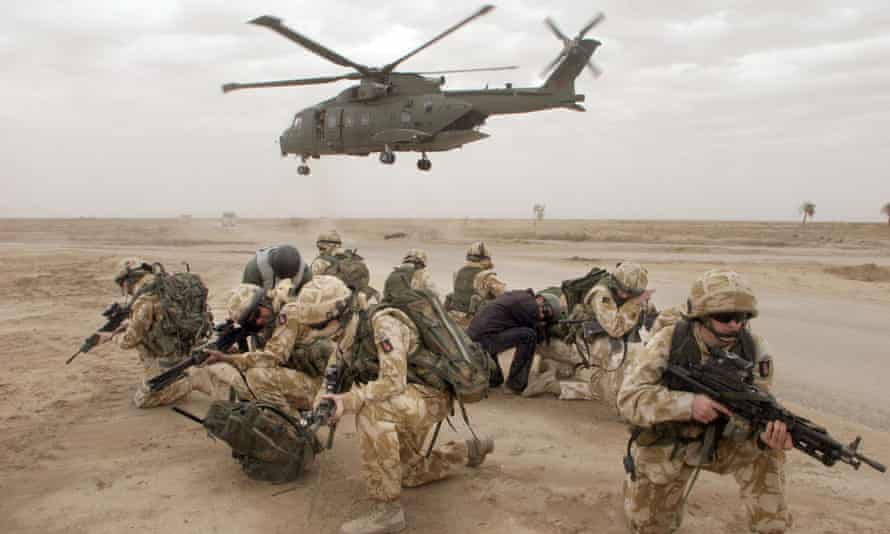
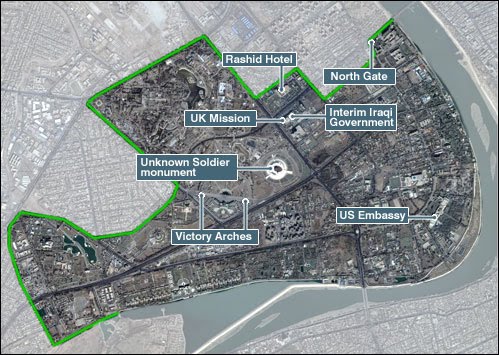

.jpg/220px-Sargon_of_Akkad_(frontal).jpg)
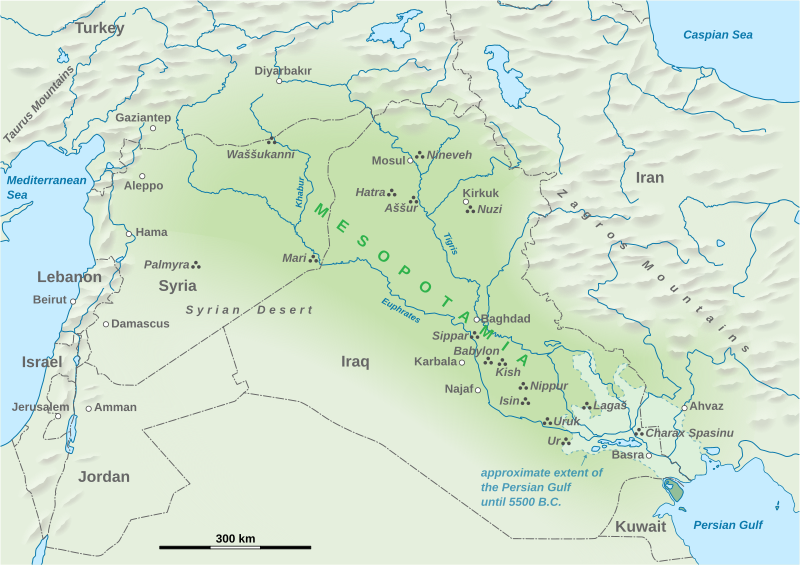
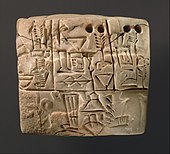
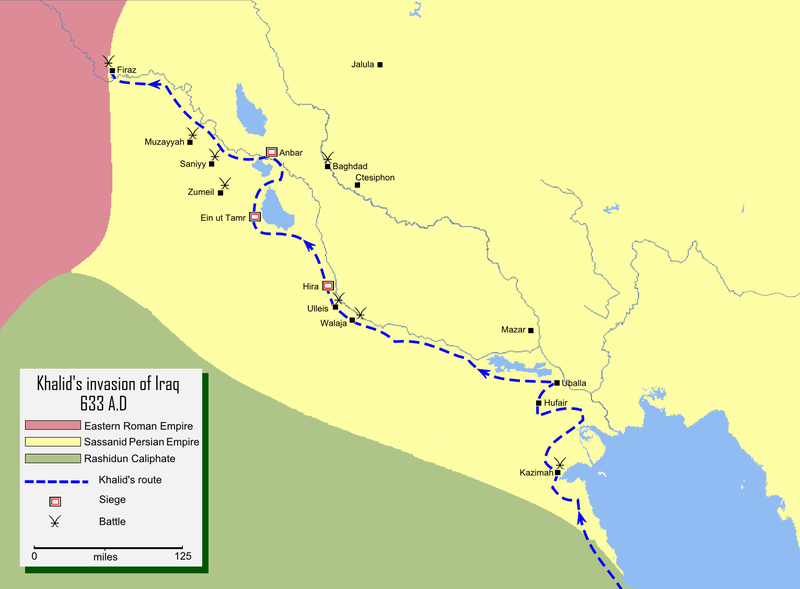


.svg/220px-Emblem_of_Iraq_(1959-1965).svg.png)

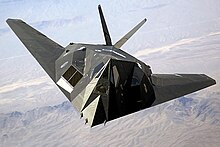

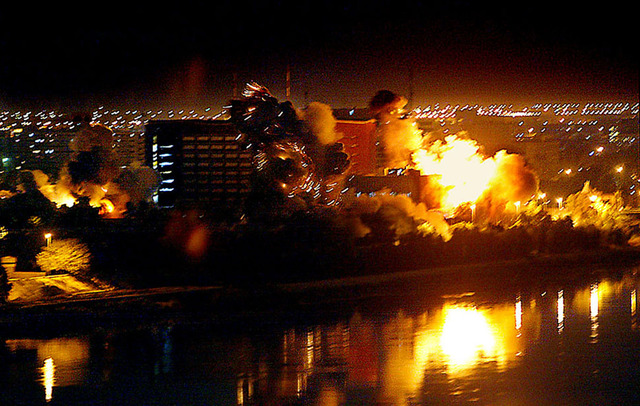
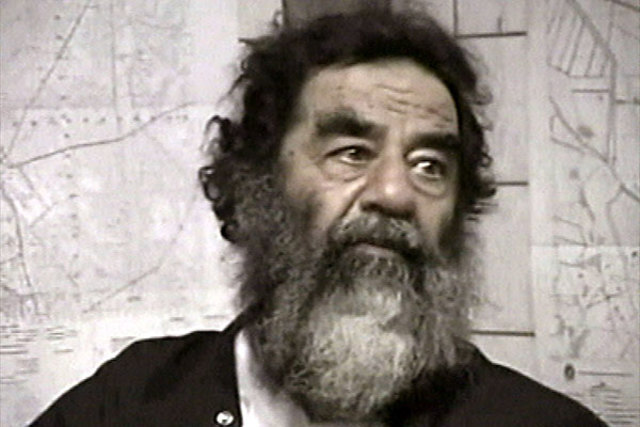

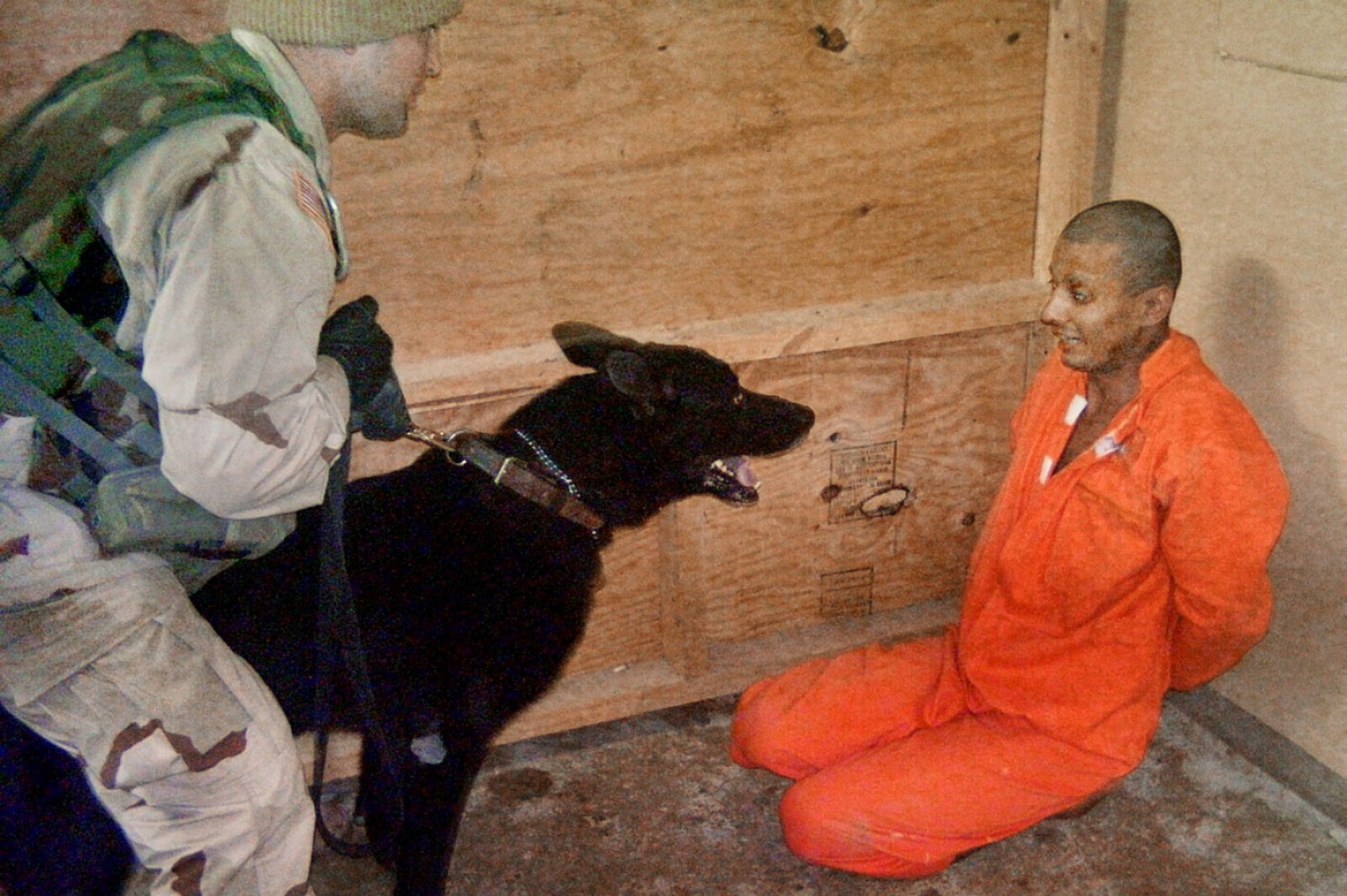



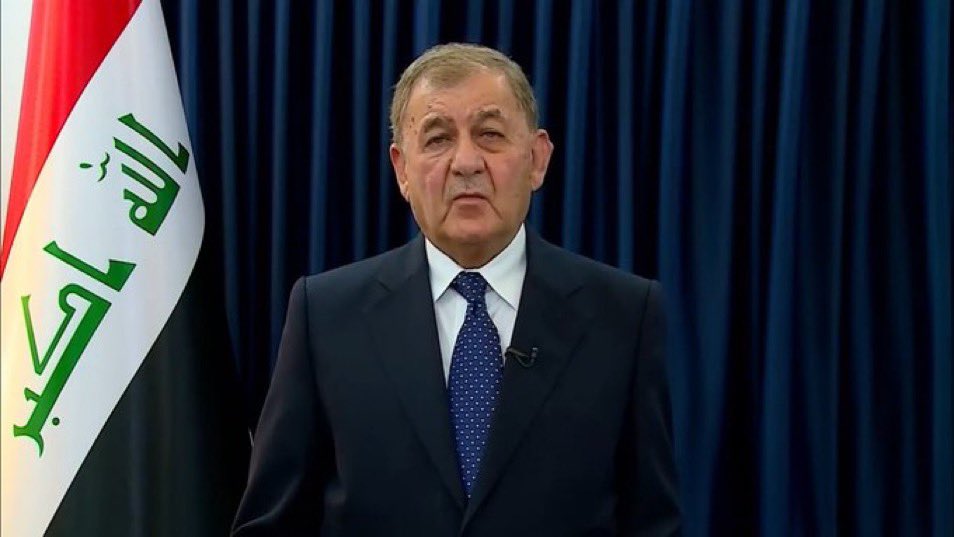

No comments:
Post a Comment